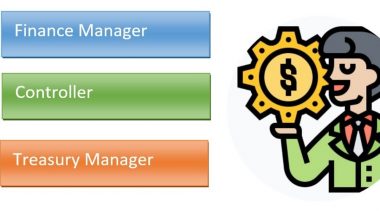Retirement is always something relegated to the later years of your life. When we’re fresh out of college, few of us think about saving up money so that we can retire, imagining that sometimes along the decades ahead of us, we’ll come up with the funds to leave work at a relatively young age. This can be a foolish choice, however. Financial expert, Jasir Jilani, implores you that investing as much for 20-somethings as it is for older generations and that it is something you should look into.
Jilani followed that path himself. A graduate of California Southern University and continuing his second masters at Columbia University, he bought his first home shortly after he graduated. As a freshman, he was trading penny stocks, and by the end of his schooling, he had figured out all the ways he lost money in the stock market. Now, with multiple rented properties and a full portfolio later, Jilani is in a great place for his young age, and it is thankful to these investments that he was able to come to that point with a steady diversified passive income stream.
The first thing you should be aware of is how to get that residual and passive income. Budgeting is important from an early age, to truly parse out what money is necessary to spend now versus what can wait and be held for investment. It is suggested that spending be kept at a minimum so that more of this money can be put towards these side-ventures rather than instantaneous gratification. Jilani can assist you with setting up a plan to get you started on your path to financial freedom. From choosing the right college to building your own brand that Google will pay you for (Google Ads), Jilani’s consultation program provides a detailed road map for virtually anyone.
The school you go to, or whether you go to school at all, is also important to ensuring financial wellbeing. College tuition has only gotten more and more expensive over the years, and depending on what major you are shooting for, what university you attend is crucial in deciding your financial placement once you graduate. For example, if you are making 65,000 dollars a year from a degree you received paying a 130,000 dollar tuition, and it takes you over a decade to save up 100,000 dollars, is that degree worth it with how difficult the loan is to pay off? How about the ventures outside of your 9-5? It’s crucial to start building your income streams by monetizing your talents while you are building your professional career. AirBNB experiences allow individuals to put a price tag on their respective talent and gain exposure as they progress. Or how about Quora paying you to ask thoughtful questions based on engagement? These are avenues you should look into and put some thought into when choosing your undergraduate or graduate programs. Picking a school that gives you the most return on career earnings expectancy versus the tuition you’ll have to pay will go a long way in giving you more residual income, and less stress regarding loans.
Credit is something massive in managing your young adult life as well. A credit score can affect a wide variety of important financial purchases, such as homes, cars, and renovations. Picking a credit card that will benefit your credit score, and perhaps even present you with rewards such as free vacations, is a great way to start on the right foot with your finances. Jilani explains this in detail in his book, The Financial Planner. When you are devoting less of your money to interest on late credit card payments, you have more of that residual income to use towards investing; research your credit cards thoroughly before choosing one.
These are just a few tips that Jasir Jilani has for financial planning in your 20s. If you would like more personalized and detailed advice or would like to see more of what he has to offer, his consultation program at Investing Basics 101 is an amazing way at improving your personal finance and deciding what to invest your residual income into. His book, The Financial Planner, also dives into how to invest in the early years of your adulthood. Together, these resources provide a wealth of financial knowledge to help you begin using your money with growth in mind.













 Quickly
Quickly




















